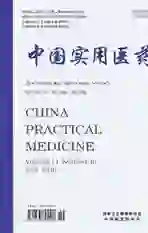心理干预对低龄孕妇分娩结局影响的护理研究
2019-08-18沈彩玉
沈彩玉

【摘要】 目的 分析心理干预对低龄孕妇分娩结局的影响。方法 84例低龄孕妇, 随机分为对照组和治疗组, 各42例。对照组采用常规产科产前护理, 治疗组采用心理干预。对比两组分娩方式、产后2 h和24 h出血量及护理前后抑郁自评量表(SDS)和焦虑自评量表(SAS)评分。结果 治疗组剖宫产率明显低于对照组, 自然分娩率明显高于对照组, 差异有统计学意义(P<0.05)。治疗组产后2 h出血及产后24 h出血量分别为(120.31±76.59)、(229.87±53.64)ml, 均少于对照组的(276.54±53.21)、(358.74±67.02)ml, 差异有统计学意义(P<0.05)。护理后, 治疗组SDS和SAS评分均对低于对照组, 差异有统计学意义(P<0.05)。结论 对低龄孕妇进行心理干预, 既可有效提高自然分娩率, 减少产后出血量, 又能缓解孕妇情绪。
【关键词】 心理干预;低龄孕妇;分娩结局
DOI:10.14163/j.cnki.11-5547/r.2019.19.083
【Abstract】 Objective To analyze the influence of psychological intervention on delivery outcome of young pregnant women. Methods A total of 84 young pregnant women were randomly divided into control group and treatment group, with 42 cases in each group. The control group received routine prenatal nursing in obstetrics, and the treatment group received psychological intervention. Comparison were made on delivery modes, bleeding volume at postpartum 2 and 24 h, self-rating depression scale (SDS) and self-rating anxiety scale (SAS) scores before and after nursing between the two groups. Results The treatment group had obviously lower cesarean section rate than the control group, and obviously higher natural childbirth rate than the control group. Their difference was statistically significant (P<0.05). At postpartum 2 and 24 h, the treatment group had less bleeding volume respectively as (120.31±76.59) and (229.87±53.64) ml than (276.54±53.21) and (358.74±67.02) ml in the control group. Their difference was statistically significant (P<0.05). After nursing, the treatment group had lower SDS and SAS score than the control group, and the difference was statistically significant (P<0.05). Conclusion Psychological intervention for young pregnant women can not only effectively improve the natural delivery rate, reduce the amount of postpartum hemorrhage, but also alleviate maternal emotions.
【Key words】 Psychological intervention; Young pregnant woman; Delivery outcome
近年來我国未到法定结婚年龄20周岁的低龄孕妇人数在不断增长, 由于孕妇年龄相对较低, 对相关知识较为欠缺, 再加之年龄未达到国家规定, 易产生复杂心理活动[1]。因害怕、紧张以及恐惧等情绪, 导致生理变化, 既对产程进展造成影响, 严重时诱发并发症, 危及母婴安全。因此, 给予低龄孕妇针对性护理干预尤其重要。据数据显示, 对低龄孕妇采取心理干预可取得满意效果, 能有效确保新生儿安全, 降低孕妇产后出血风险[2]。为此, 本文将对低龄孕妇应用心理干预对分娩结局的影响予以研究, 现报告如下。
1 资料与方法
1. 1 一般资料 选取2018年1~12月在本院产科分娩的84例低龄孕妇作为研究对象, 随机分为对照组和治疗组, 各42例。对照组年龄17~20岁, 平均年龄(18.23±1.21)岁;孕周37~41周, 平均孕周(38.56±2.14)周。治疗组年龄17~20岁, 平均年龄(18.59±1.42)岁;孕周37~41周, 平均孕周(38.62±2.34)周。两组孕妇一般资料比较差异无统计学意义(P>0.05), 具有可比性。
